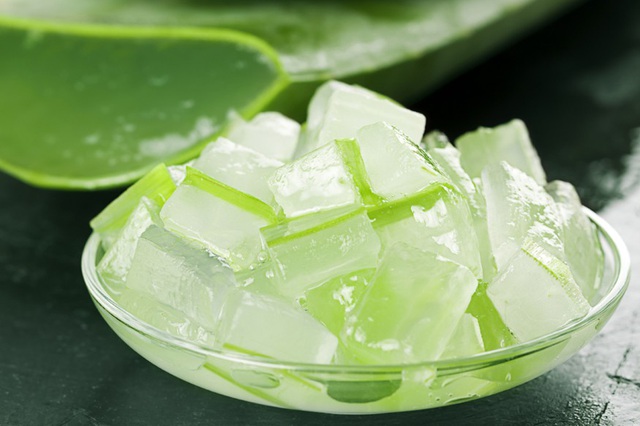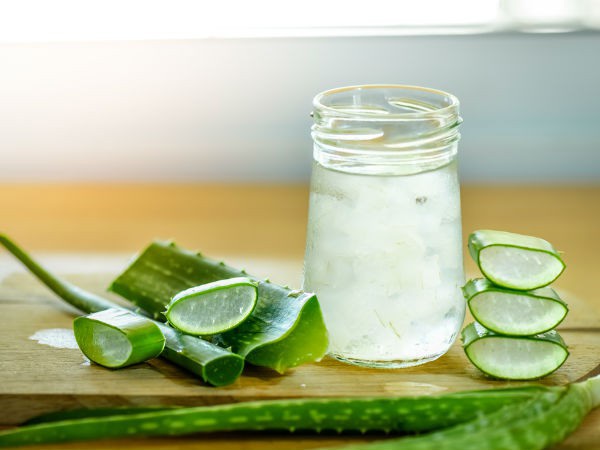9 Needs to Know about Side Effects of Aloe Vera

Aloe vera (Aloe) has many benefits for beauty and health, but it has 9 side effects you may not be aware of.
The Aloe Vera plant has become familiar many centuries ago. It is grown mainly to get Aloe vera gel. Aloe vera is widely used today in foods, cosmetics, herbs, and supplements.
Aloe vera produces two substances – gel and resin, which are used in medicine. Aloe vera gel is the transparent flesh in the aloe vera leaves. Aloe vera resin is pale yellow in color and secretes slowly under the bark. Aloe vera gel is about 96% water and contains vitamins A, B, C and E.
Most people eat aloe vera gel to treat diabetes, hepatitis, weight loss, inflammatory bowel disease, stomach ulcers, osteoarthritis, asthma, fever, itching and inflammation, etc. Aloe vera gel pills also applied topically on the skin. Aloe vera gel is good for health, hair and skin. This gel is also used to make Aloe vera juice which is used in many preparations of traditional Indian medicine.
However, drinking too much Aloe vera juice can be harmful to the body and lead to various side effects. Some people may also be allergic to the sap of the plant.
Is it safe to use Aloe Vera?
Drinking aloe vera juice can cause serious health effects such as diarrhea, abdominal pain, muscle weakness, swelling of the throat and in severe cases, loss of vision. Drinking large amounts of Aloe juice over the long term can also lead to kidney failure.
Side effects of Aloe latex
Aloe vera resin is yellow in color and secretes from under the bark. Ingestion of Aloe vera resin can be unsafe, even in small doses. The side effects of Aloe vera resin include kidney problems, abdominal pain, and hypokalemia.
Side effects of Aloe juice
1. Skin allergies
Long-term use of Aloe vera gel can cause skin allergies such as inflammation, urticaria and redness of the eyelids. Other side effects on the skin include dryness, stiffness, development of purple, and chapped spots. Furthermore, applying the gel and being in the sun can cause a rash and irritation or redness and burning of the skin.
2. Lower blood sugar
Aloe vera is associated with hypoglycemia and therefore diabetics should exercise extra caution when taking aloe vera.
3. Complications of pregnancy and lactation
Both Aloe vera gel or resin may not be safe for pregnant and nursing mothers when ingested. The reason is that Aloe vera can stimulate uterine contractions and cause complications such as miscarriage, and increase the risk of birth defects. If you are breastfeeding, drinking Aloe vera juice can affect your baby.
4. Toxic to the liver
High doses of Aloe vera can lead to hepatitis. The presence of many bioactive compounds such as C-glycosides, anthraquinones, anthone, lectins, polymannans and acetylated mannans in Aloe vera can affect the detoxification process of the liver and lead to liver damage.
5. Kidney failure
Aloe vera can interact with certain drugs (Digoxin, antidiabetic drugs, Sevoflurane, diuretics) and can lead to kidney disease if taken for a long time. Aloe vera has also been linked to kidney failure. So, people with kidney problems should avoid aloe vera.
6. Electrolyte imbalance
Consuming large amounts of Aloe vera juice can cause mobility impairment, diarrhea and abdominal pain leading to dehydration and electrolyte imbalance.
7. Stomach discomfort
One of the side effects of drinking Aloe vera juice is an upset stomach. Aloe vera resin can cause excessive cramps, bloating, and abdominal pain. Avoid drinking Aloe vera juice, especially if you are having stomach problems.
8. Intestinal diseases such as Crohn’s disease and ulcerative colitis
If you have any bowel disease, like Crohn’s disease and ulcerative colitis, avoid drinking Aloe vera juice as Aloe vera resin causes intestinal irritation.
9. Hemorrhoids
If you have hemorrhoids, avoid Aloe juice as it can make the condition worse.
Note: Aloe vera can affect people who need surgery. During and after surgery, Aloe vera can affect blood sugar and interfere with blood sugar control. If surgery is about to happen, stop using Aloe vera two weeks before surgery.
Source: www.truclamphatagri.com
Reference articles:
Some wonderful uses of aloe vera



















Leave a comment